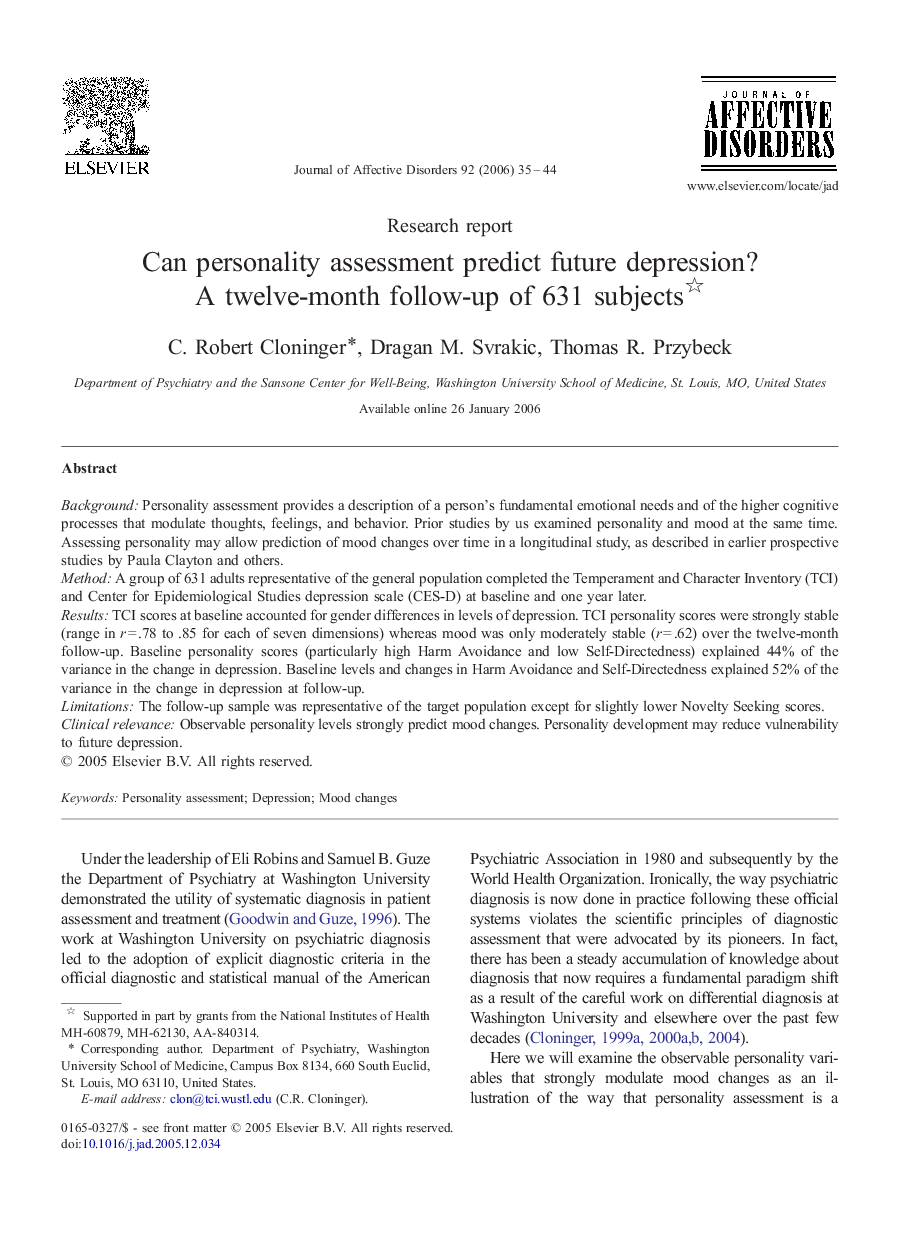| Article ID | Journal | Published Year | Pages | File Type |
|---|---|---|---|---|
| 4188200 | Journal of Affective Disorders | 2006 | 10 Pages |
BackgroundPersonality assessment provides a description of a person's fundamental emotional needs and of the higher cognitive processes that modulate thoughts, feelings, and behavior. Prior studies by us examined personality and mood at the same time. Assessing personality may allow prediction of mood changes over time in a longitudinal study, as described in earlier prospective studies by Paula Clayton and others.MethodA group of 631 adults representative of the general population completed the Temperament and Character Inventory (TCI) and Center for Epidemiological Studies depression scale (CES-D) at baseline and one year later.ResultsTCI scores at baseline accounted for gender differences in levels of depression. TCI personality scores were strongly stable (range in r = .78 to .85 for each of seven dimensions) whereas mood was only moderately stable (r = .62) over the twelve-month follow-up. Baseline personality scores (particularly high Harm Avoidance and low Self-Directedness) explained 44% of the variance in the change in depression. Baseline levels and changes in Harm Avoidance and Self-Directedness explained 52% of the variance in the change in depression at follow-up.LimitationsThe follow-up sample was representative of the target population except for slightly lower Novelty Seeking scores.Clinical relevanceObservable personality levels strongly predict mood changes. Personality development may reduce vulnerability to future depression.
